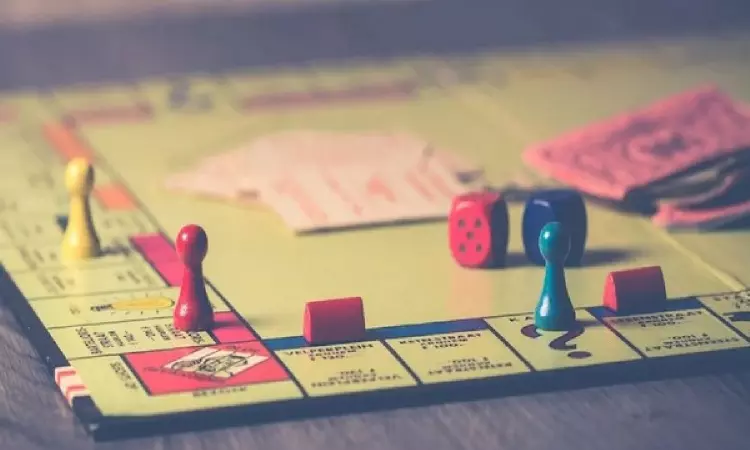Numerous board games, including Monopoly, Othello, and Chutes and Ladders, have been found to improve young children’s math skills.

Numerous board games, including Monopoly, Othello, and Chutes and Ladders, have been found to improve young children’s math skills.
Board games, especially those that promote reading and literacy, have long been known to enhance learning and development.
Recent study that was just published in the peer-reviewed journal Early Years stated that the structure of number-based board games aids children from the ages of three to nine in developing their counting, addition, and ability to determine whether one number is higher or lower.
Children benefit from programmes, or interventions, where they play board games a few times a week under the supervision of a teacher or another qualified adult, according to the researchers.
According to lead researcher Dr. Jaime Balladares of Santiago, Chile’s Pontificia Universidad Catolica de Chile, “Board games enhance mathematical abilities for young children.”
“Playing board games can be thought of as a tactic that could have an impact on both simple and complex math abilities.
“Learning objectives related to mathematical abilities or other domains can be easily incorporated into these games,”
The fixed nature of board game rules restricts a player’s options, and moves made on the board typically determine the game’s overall dynamic.
However, board games are rarely used in preschools. The objective of this study was to gather all of the information on how they affect kids.
The goal of the study was to determine the extent to which physical board games can encourage learning in young children.
They used a review of 19 studies with children between the ages of three and nine that were published starting in 2000 to draw their conclusions. Except for one study, all others examined the connection between board games and mathematical prowess.
Over the course of one and a half months, all study participants received specialised board game sessions, which took place on average twice a week for 20 minutes. These sessions were led by adults who included parents, teachers, and therapists.
Children were divided into groups for the number board game or for a board game that didn’t emphasise numeracy skills in some of the 19 studies. In others, all of the kids played a variety of board games but were given different kinds, like Dominoes.
Before and after the intervention sessions, which were created to encourage skills like counting aloud, all children were tested on their maths performance.
According to four categories, including basic number competency—such as the ability to name numbers—and basic number comprehension—such as knowing that nine is greater than three—the authors assigned success ratings.
Deepened number comprehension, which is demonstrated by a child’s ability to add and subtract precisely, and mathematical interest were the other categories.
In order to learn maths skills for the games, parents occasionally went to a training session.
For more than half of the tasks examined, the results revealed that children’s maths abilities significantly improved following the sessions.
Children in the intervention groups outperformed those who did not participate in the board game intervention in nearly one-third of the cases.
The findings also indicate that while games focused on language or literacy were implemented, no scientific evaluation of their effects on children—such as a comparison of control and intervention groups or pre- and post-intervention—was done.
Therefore, according to Dr. Balladares, a former employee of UCL, “urgent tasks to develop in the next few years” include designing and implementing board games as well as developing scientific methods to assess their effectiveness.